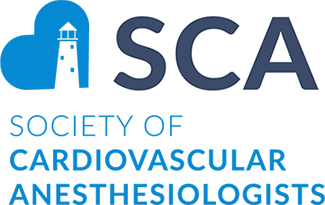Flawless Operative Cardiovascular Unified Systems (FOCUS) Patient Safety Project Initiated
In 2004, the SCA Board wished to create a compelling, impactful philanthropic project that would improve patient outcomes and have broad medical and lay appeal. The Flawless Operative Cardiovascular Unified Systems (FOCUS) initiative was a novel program that was conceived by Bruce D. Spiess, MD, FAHA. The vision was for a lasting initiative with wide involvement beyond a small academically–oriented cadre of leaders. FOCUS recognized that anesthesiology was a leader in patient safety through years of monitoring, drug, and equipment advances. The specialty was also prominent in closed claims and scenario analyses of common adverse events. No systematic study of human factors in operating rooms existed.
The cardiovascular operating room is a high-tech environment with highly trained personnel who must work cohesively in teams to accomplish the best outcomes for patients. High–performing industry (civil aeronautics and nuclear power) and military (naval aircraft carrier) groups were moving towards 6-sigma levels of near–perfect outcomes. Although we had advanced technology at our fingertips, with little knowledge of our own perfections/imperfections, how were we to understand the human environment of a complex operating room?
FOCUS was initially created to study the cardiac surgical team through various LENSes (Learning of Errors through Networked Surveillance) with a lead human factors engineer, Scott Shappell, PhD, overseeing the Request for Proposal process. The SCA awarded the grant for this important work to the Johns Hopkins Center for Quality and Innovation, under the direction of Peter Pronovost, MD. The Johns Hopkins team reviewed over 1400 peer–reviewed articles to further define the areas to investigate through the FOCUS project. From 2004-2014, prospective observational and interventional research studies were conducted under FOCUS across multiple cardiovascular centers within the United States. The LENs system examined many different aspects of human technology and human–to–human interface in a broad effort to improve patient outcomes. Reports of the FOCUS initiative progress, ongoing and future projects were part of each SCA annual meeting. Additionally, progress and future proposals were reported at multiple other anesthesiology and surgery meetings.
FOCUS transitioned from being a SCA sponsored project to a national effort as individual anesthesiology and surgical departments expanded upon the initial work and incorporated lessons learned into their daily practice. Through the Agency of Healthcare Research and Quality (AHRQ) and other funding mechanisms, many additional research initiatives were initiated in this space. To date, a significant number of research manuscripts have been published. The concentration of human factors research within the cardiovascular operating room would not have occurred without the SCA’s commitment and funding. FOCUS was the initial spark that ultimately will lead to a 6-sigma goal of error–free cardiac operating rooms.
